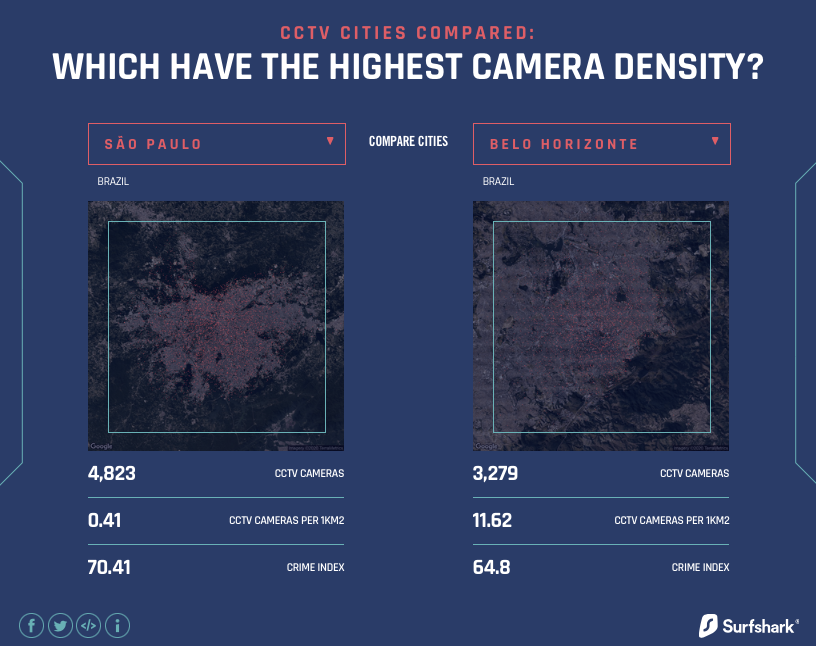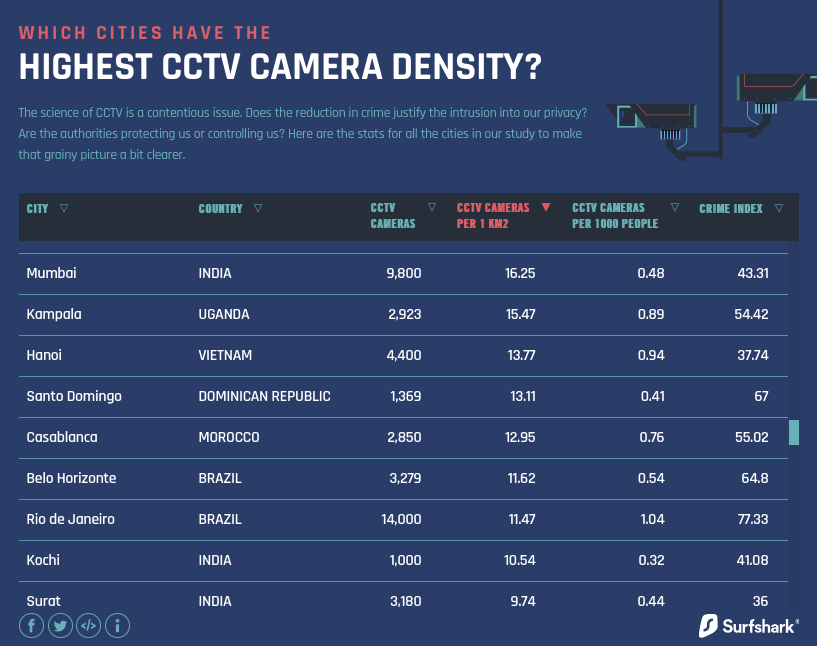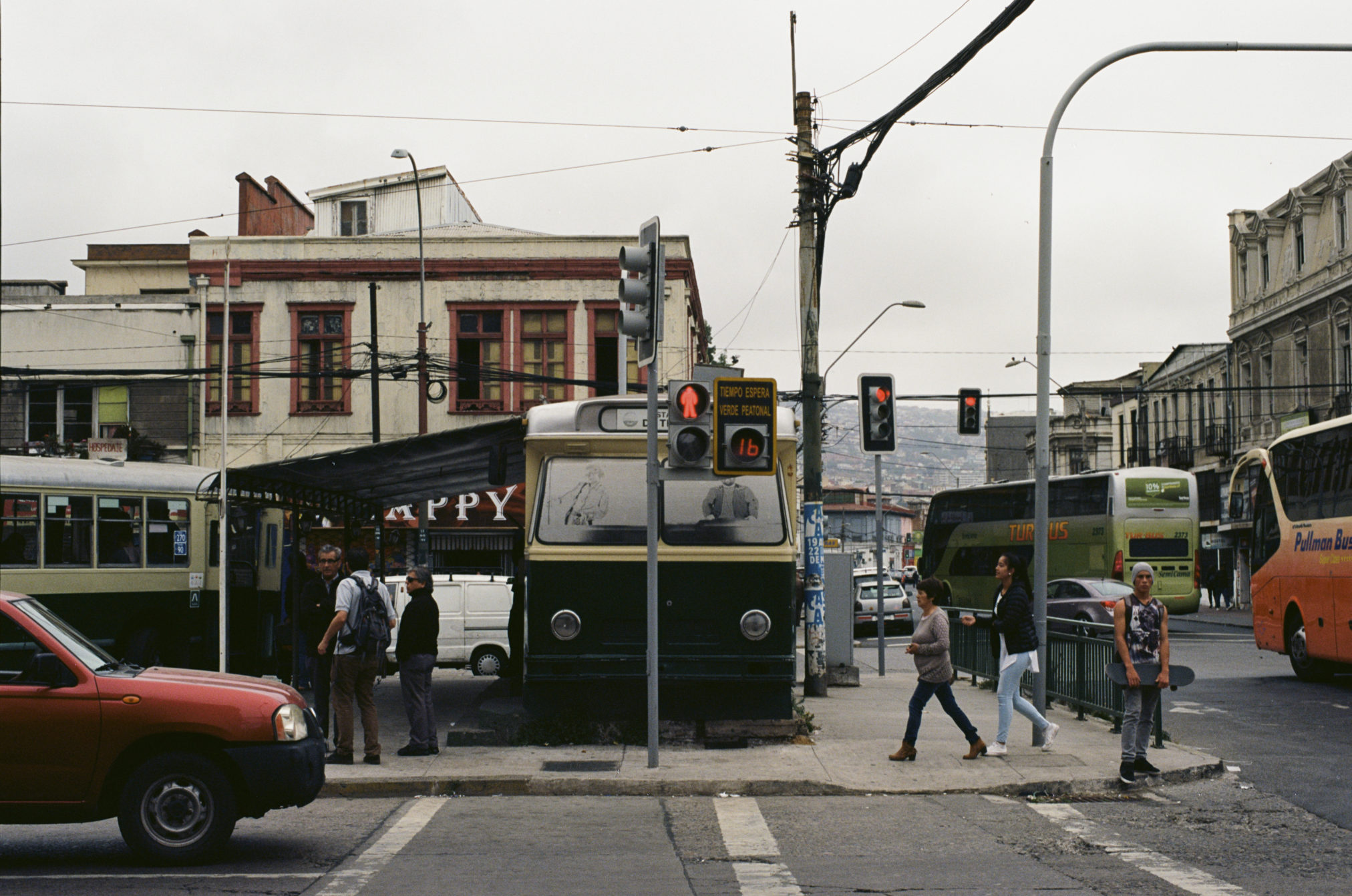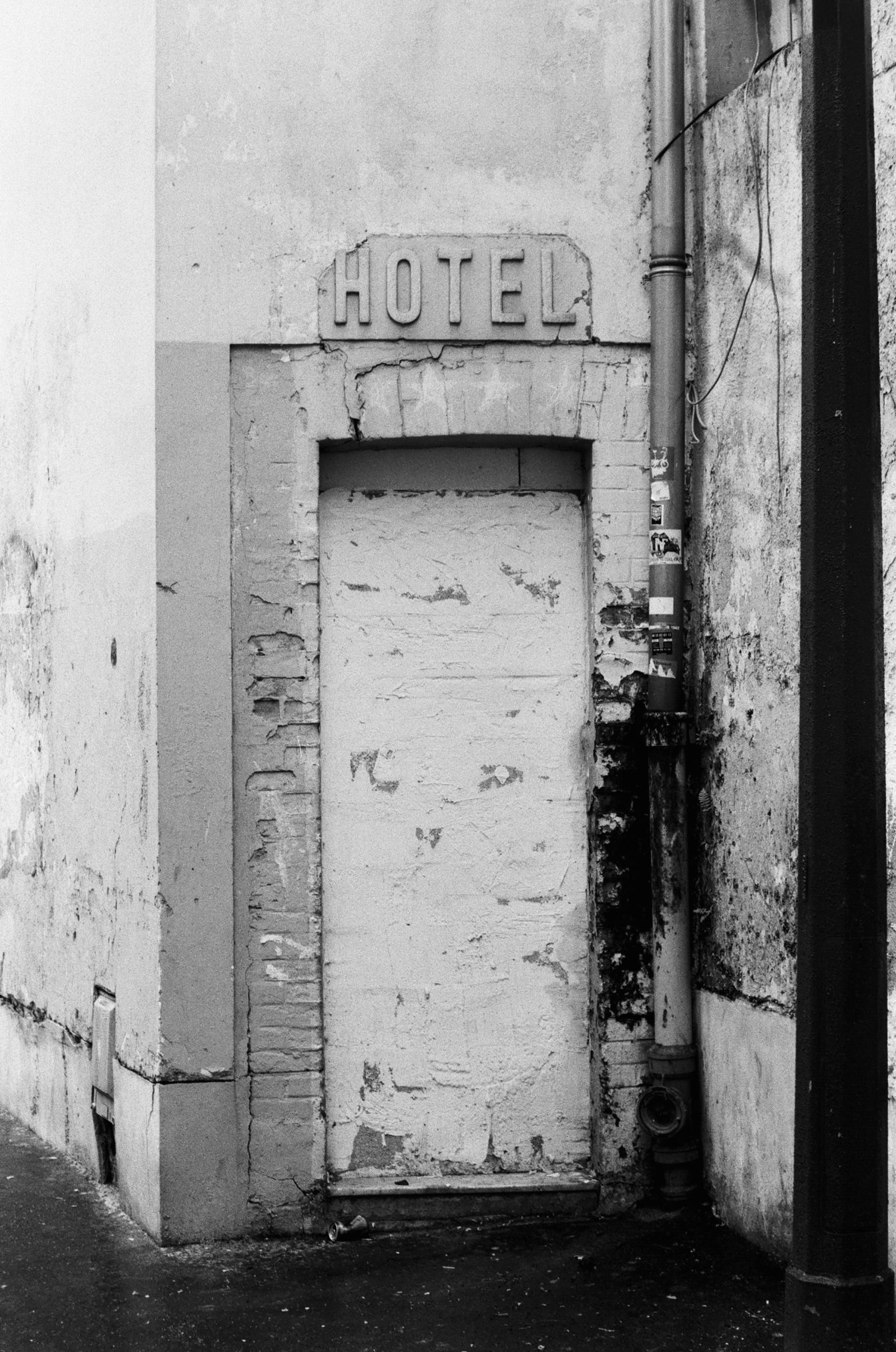Surveillance cities
The increasing levels of CCTV surveillance can have direct implications on people’s privacy. In 2021, the billionth surveillance camera in the world is expected to be installed by the end of the year, equating to one closed-circuit television camera for every eight humans on Earth. Surfshark has conducted an interesting study on surveillance cameras, providing numbers and data on their spatial distribution. The tool allows for comparisons between cities based on data such as camera concentration per square kilometer, per capita, and by city and country.
In a quick comparison between Belo Horizonte and São Paulo, we can identify a high density of CCTV equipment per square kilometer in Belo Horizonte, even though the capital of Minas Gerais has a lower number of installed devices.

According to the ranking, Belo Horizonte is the city with the highest concentration of CCTV equipment per square kilometer in Brazil.

Considering the increasing levels of CCTV surveillance, I share some questions to engage in a broader discussion about the impact of CCTV surveillance on society, privacy, and public spaces.
- What is the direct impact on public safety and which interests are indirectly benefited by the expansion of the monitoring system? a. How does the presence of surveillance cameras affect crime rates and deterrence? b. Do surveillance systems contribute to a sense of security among the public? c. Who benefits from the expanded surveillance network? Are there any particular groups or institutions that gain advantages from the monitoring system? d. Are there any potential biases or unintended consequences in the utilization of CCTV surveillance?
- What is the impact of the presence of these devices in public spaces? a. How does the presence of surveillance cameras affect people’s behavior in public areas? b. Does the perception of constant surveillance impact individuals’ sense of privacy and freedom? c. How does the increased surveillance affect public trust and the relationship between citizens and authorities? d. Are there any concerns about the potential misuse or abuse of surveillance footage?
- What are the ethical considerations surrounding the widespread use of CCTV surveillance? a. Is there a balance between public safety and individual privacy? How can it be achieved? b. Are there any guidelines or regulations in place to ensure the responsible use of surveillance technologies? c. How can transparency and accountability be maintained in the operation and management of surveillance systems? d. Are there any potential risks of mass surveillance leading to a surveillance state or erosion of civil liberties?
- What are the long-term implications of the expansion of CCTV surveillance? a. How might the continued growth of surveillance systems impact societal norms and expectations of privacy? b. What are the potential consequences for social interactions and public spaces in a heavily monitored society? c. Are there alternative approaches to ensuring public safety that should be considered alongside or instead of extensive surveillance?




